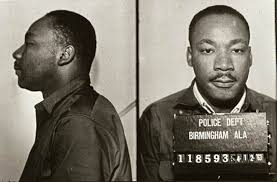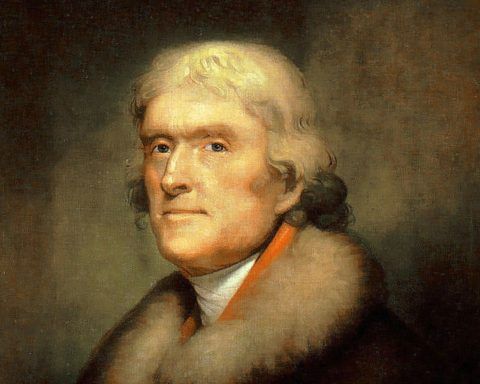Over the last several years, the debate over whistleblowers in society has intensified. Former NSA contractor Edward Snowden currently lives in exile, unable to return home because of what he leaked. While in all technicality he did break the law, sometimes morality is greater than legality. The programs he exposed confirmed the suspicions of many and painted a more vivid picture of the nightmares we long imagined.
We are being watched like criminals without a criminal conviction, our data is being intercepted as if we’re terrorists without committing a terrorist act, and all of this information is being stored without any legal authorization.
Snowden’s case is important to United States history for a number of reasons. This isn’t just another whistleblower case. It isn’t another political policy discussion or libertarian soapbox about government surveillance.
This is history on trial. This is about the integrity of our country’s founding principles.
Did the former contractor break the law? He did. But was he wrong to do so?
History textbooks speak of the Civil Rights Movement, a contentious moment in history where regular Americans had to battle the government for their rights. Deprived because of their skin color, these people felt that this justified nothing and stood up to the government on moral grounds. Just as abolitionists refused to comply with the Fugitive Slave laws, these people believed that government act or not, morality and freedom reign supreme above all.
Among those brave leaders was Martin Luther King Jr., probably the most well-known of prominent leaders. In regards to unjust laws, he stated “To accept passively an unjust system is to cooperate with that system; thereby the oppressed become as evil as the oppressor. Non-cooperation with evil is as much a moral obligation as is cooperation with good. The oppressed must never allow the conscience of the oppressor to slumber.”
Is it just for the government to be indiscriminately intercepting our phone records, mining our cellular data, and storing our personal information? The Constitution says no and the same document also says it is the supreme law of the land.
To this date, the National Security Agency has not been granted authority through an amendment to the Constitution. It is thus acting without constitutional authority.
What should Edward Snowden have done?
In the famous Letter From Birmingham Jail, King elaborated on the topic. At the time, he had been imprisoned because of his nonviolent disobedience to racial oppression. Dealing with the topic of selectively obeying the law, he made note that the Boston Tea Party was an illegal act of disobedience that eventually sparked a revolution for freedom. Alternatively, everything Adolf Hitler did in Germany to Jews, political dissidents, and other individuals was legal.
In the letter, he stated we only have a moral obligation to follow just and moral laws. Citing St. Augustine, he stated an unjust law is no law at all.
The principle being depicted here is fairly basic. Even our children are taught at a young age that we should not be innocent bystanders when witnessing bullying, which is a childlike form of oppression. This does not mean we endorse or encourage violence, but it means we need to stand up for what is right.
Beyond being fairly elementary, it’s also an American tradition. When the Alien and Sedition Acts were passed in 1798, Thomas Jefferson and James Madison both responded through their respective State Legislatures that the states should interpose on behalf of the people and nullify the unconstitutional acts of government.
In the decades leading up to the Civil War, Fugitive Slave laws mandated that runaway slaves be returned to their owners in the south. Many in the North knew this to be wrong, whether it was law or not. Because of this, the runaway slaves were sheltered and protected by people who were essentially criminals because they defied the law.
Jefferson, Madison, and many nineteenth century Northerners were not going to be a party to unjust laws. Snowden’s act of disobedience is consistent with the American tradition that favors freedom over government authority.
A movement to encourage President Barack Obama to pardon Edward Snowden is in progress. It’s success is not just about Snowden, but the implications of his revelations and the precedent the response sets. He exposed abuses that are in direct contradiction of the written text of the Bill of Rights and his own actions are consistent with American tradition.
To refuse Snowden the right to return home a free man is to repudiate the legacy of freedom and liberty and to disavow the tradition of noncompliance with unjust laws. His case is important because it’s not just about him. It’s about everything America once did and should again stand for.









He is a spy not a whistleblower. He should be tried for treason.
So it’s treason to expose the illegal things that a federal agency is doing? Maybe you should read the Constitution, Article 4 where treason is specifically defined.
A whistleblower goes to the authorities not Russia.
Grow up, Ray. This isn’t ‘Toto’ … Kansas ;~)
He is a traitor.
Article IV of the Constitution would be a good thing for you to read.
Here’s a funny little observation for you. Did you know that Edward Snowden uses the CallDomainName … CallEdward.com … in order to redirect people to his ‘Donate’ Web Page; and to receive email missives, etc ?
Only one (1) ‘Edward’ on the entire planted can get to use .. http//:www.CallEdward.com !! ;~)